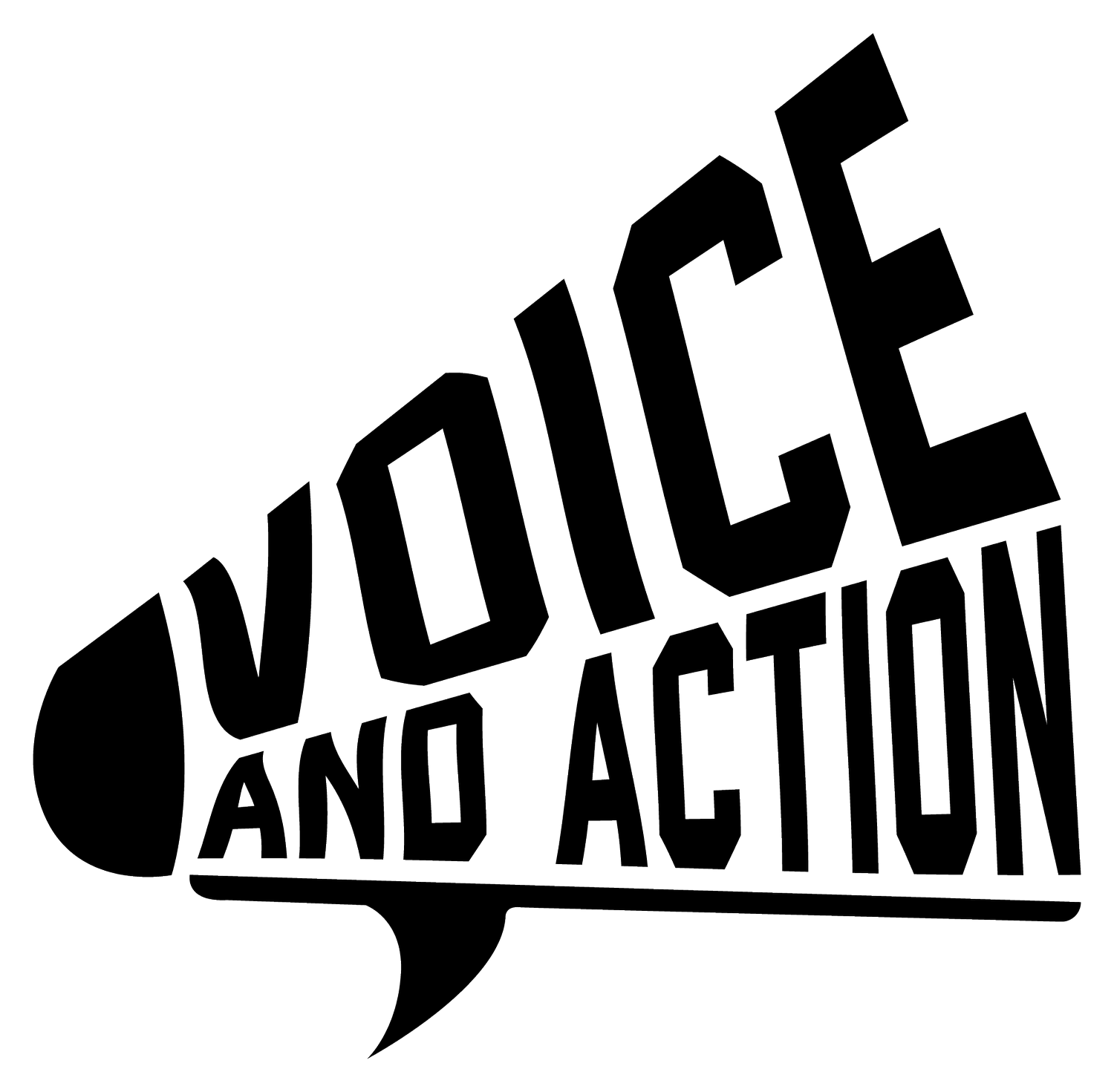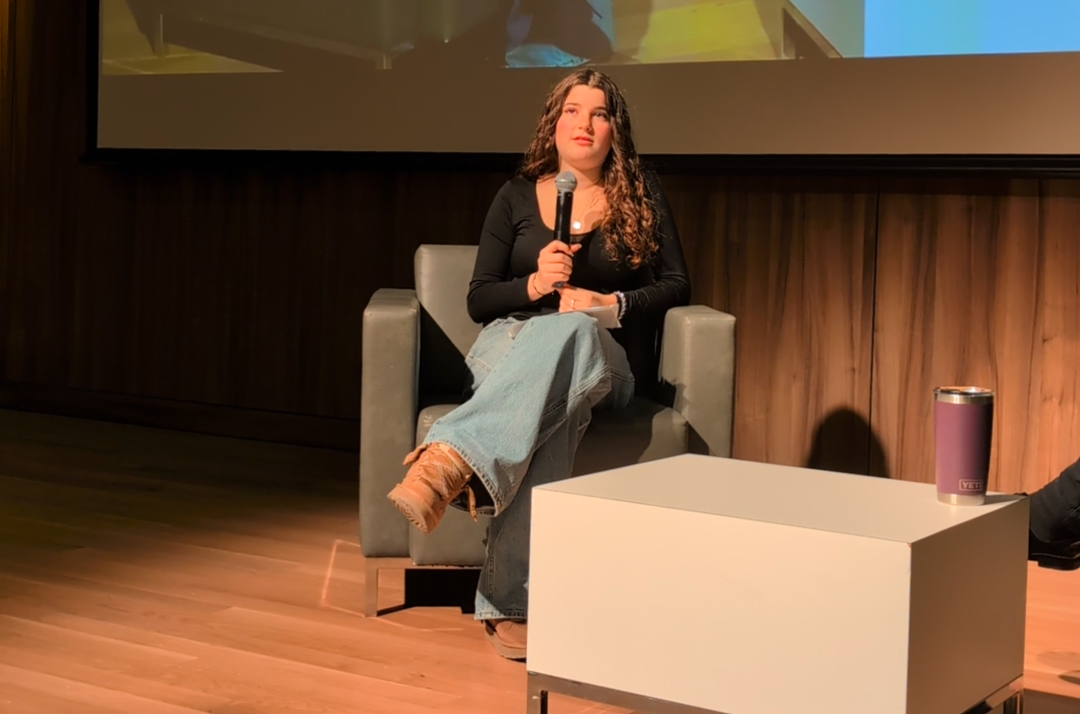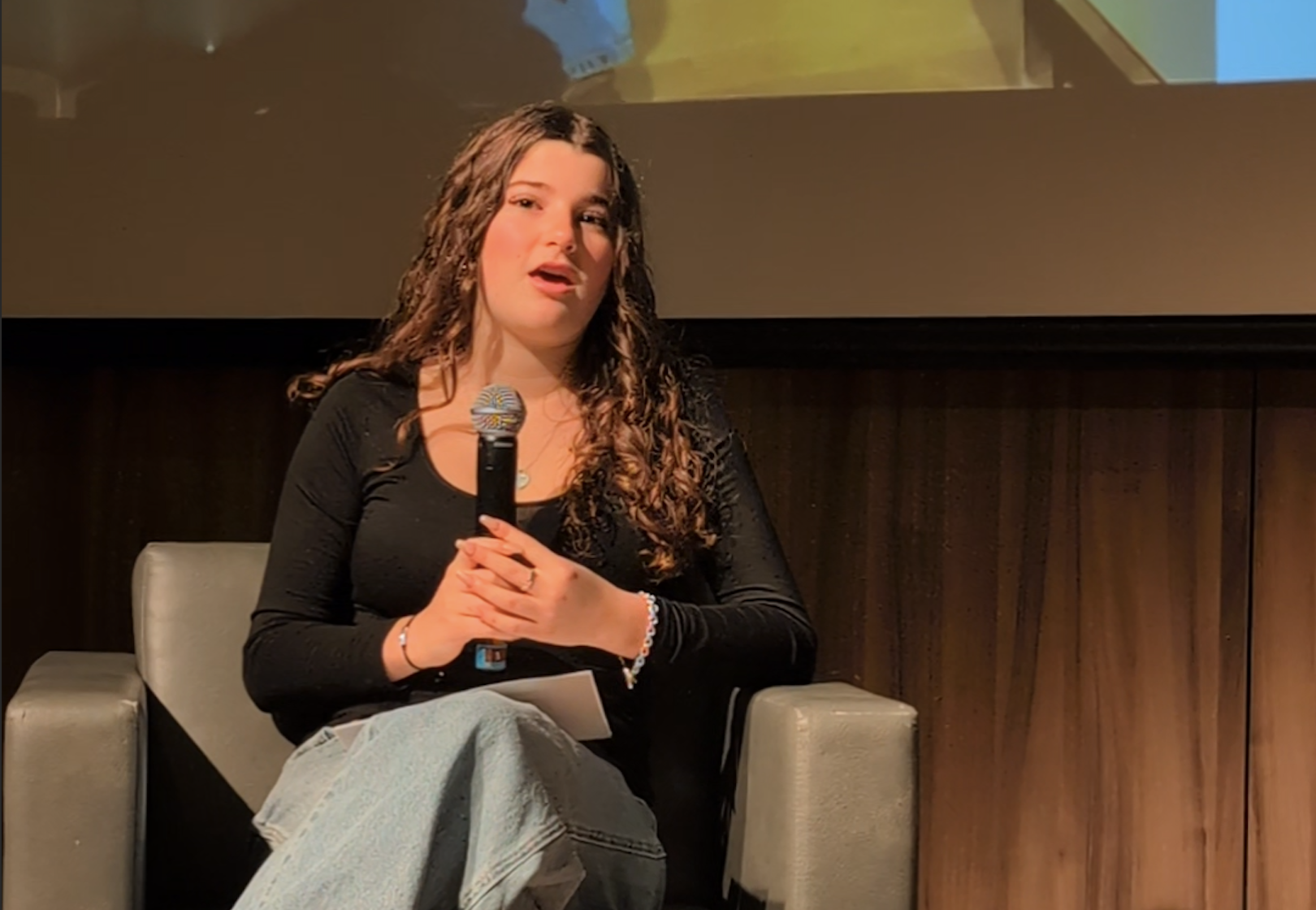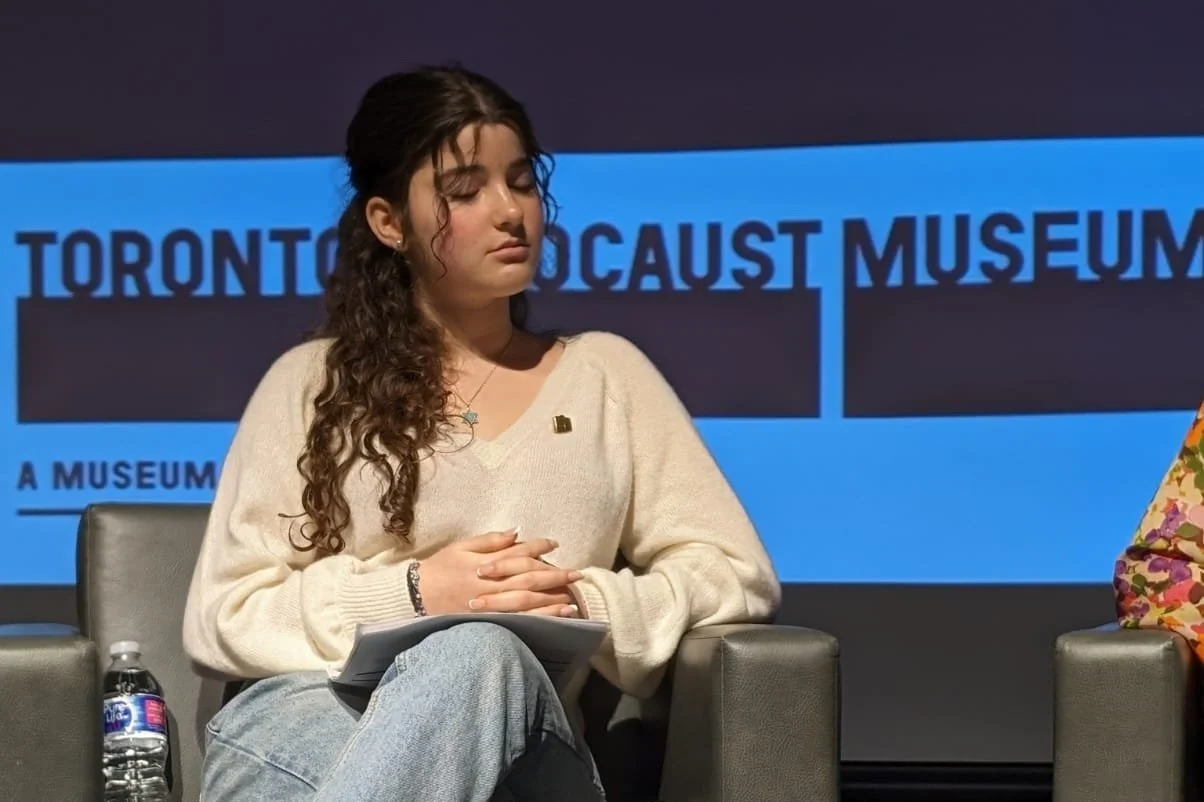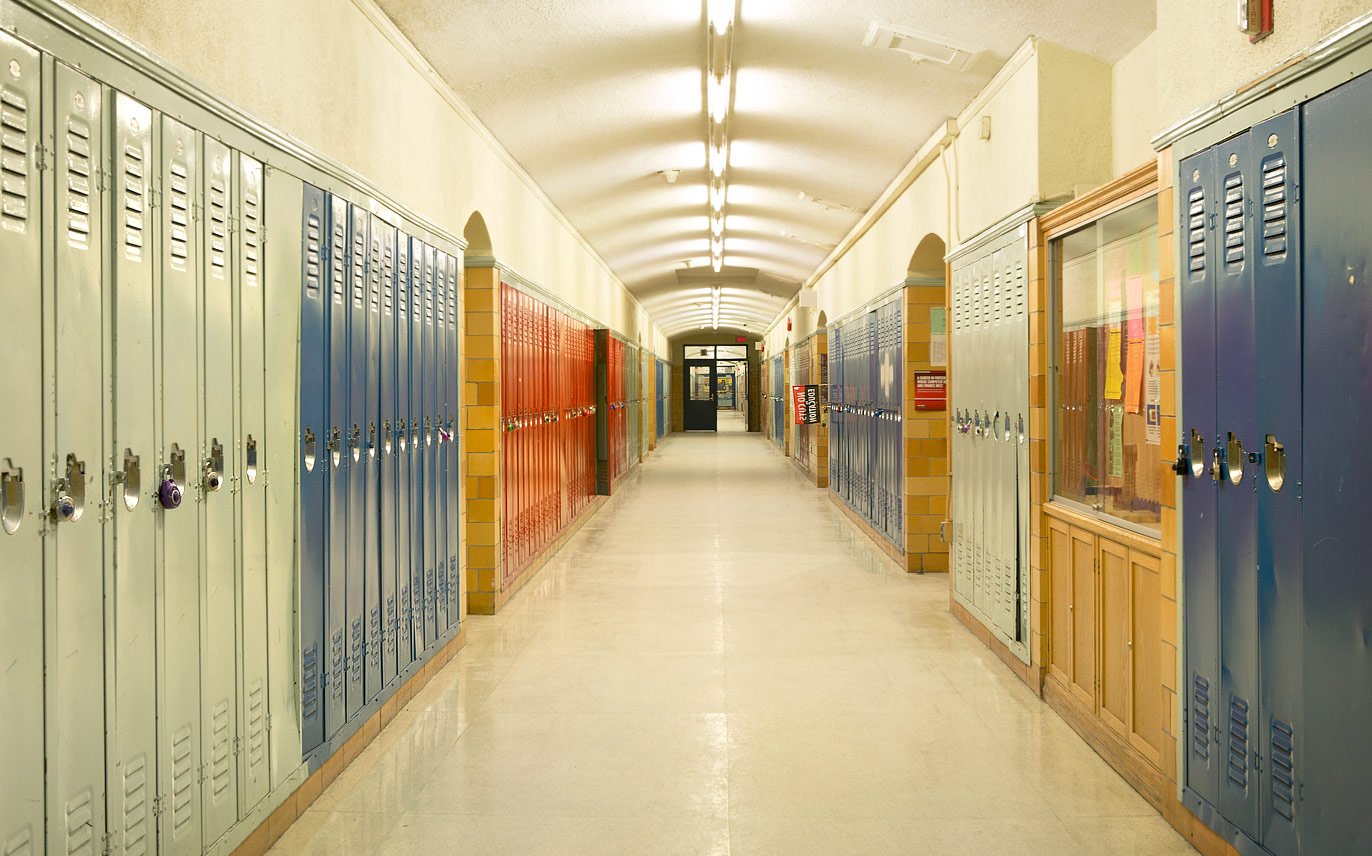
2024 Student Leader Symposium
December 4th, 2024
How did people react to your op-ed?
The title of my op-ed was “Small Acts of Hate.” You’ve probably all heard the saying “small acts of kindness,” the idea that little gestures can gradually change a community for the better. I think the same is true for small acts of hate. The things we say or do, even if they seem insignificant, can gradually change an environment—and I think that’s what’s happening in schools across Toronto and, really, all over the world.
I was inspired to write the piece after a conversation with a close family friend, Elly Gotz, a Holocaust survivor. He shared many stories and transcripts with me, including writings from people my age during the war. One that stood out was from a boy in 1930s Hungary, who described his school experience. Reading his story, I was struck by how much it resonated with what we’re experiencing here in Toronto today.
He wrote about the subtle anti-Semitism he faced in school—small remarks that made him uncomfortable, like, “Oh, you’re a good Jew, not dirty or unclean.” At first, it seemed minor, almost like backhanded compliments, but over time, these small comments escalated into acts of violence. Eventually, school wasn’t safe for him anymore.
Of course, I’m not saying Canada is anywhere close to the Holocaust. But this story shows how small actions can snowball into something much bigger if they’re not addressed. That’s why it’s so important to solve these issues early before they have a chance to grow.
What is www.voiceandaction.com?
Everyone has a voice—it’s just a matter of whether you take action or not. This organization isn’t focused on anti-Semitism or any single issue; it’s about standing up for yourself and your beliefs. I believe everyone has something important to say, and being able to articulate yourself is one of the most valuable skills you can have.
I started this website to show people, especially young people, that they have the power to speak up and make a difference. I know it can be scary, especially for our generation. We’re at a stage in life where we’re often seen as just kids, but we still have ideas, opinions, and experiences that matter.
We’re impacted by the world in the same way as everyone else, and we want to express ourselves—even if it feels intimidating. This website is here to show that other kids our age are already standing up for themselves and that you can do it too. It’s not easy, but it’s possible. I created this platform to remind everyone that you don’t have to be a bystander. You can take action, and it’s often easier than you think.
What advice would you give to someone who wants to become an advocate, especially if their message isn’t always well-received?
The foundation of becoming an advocate is to make sure you’re educated. Many people approach advocacy with passion, which is great, but they often lack the evidence or understanding to back up what they’re saying. I can’t count how many times I’ve had conversations where the other person had strong opinions but didn’t know the history or facts behind the issue.
Before you can educate others, you have to educate yourself. This is especially important in the age of social media, where anyone can read something and take it at face value. For example, I’ve had people tell me that the phrase “From the river to the sea” has nothing to do with Jewish people and is about universal rights or helping others. In those moments, I had to explain the true context and history, which can be challenging because these issues are deeply personal.
What is the new normal?
I'm the president of Jewish Students Union at my school and I've seen many schools not allowed to have their clubs anymore. Not allowed represent themselves in their own school, And I find myself having to actually thank my administrators for letting me be Jewish the other day. I had my principal come up to me telling me how I should be thanking him for allowing me to have my club in my school and how it's an honour.
When I realized that, no one else has to thank him for letting them be themselves in our school environment. And I think that's a big difference that it's just become normalized and it's our new reality cycle.
What have you learned from being an advocate?
One of the biggest lessons I’ve learned is that everything you do can make a difference—both positive and negative. In school, we learn simple lessons like picking up after ourselves or not littering. If one person throws garbage on the ground, others might feel like they can do the same, and before you know it, the whole neighborhood is dirty.
On the flip side, one person cleaning up can make a difference, but if others don’t join in, the overall impact is limited. What I’ve realized is that advocacy works the same way. You can’t do it alone. It’s not enough for one person to stand up—it requires collective effort to create real change. I’ve also learned that this isn’t just a Jewish issue.
Many people I’ve talked to have said things like, “Well, I’m not Jewish, so this doesn’t affect me.” But I don’t think that’s true at all. These issues are universal. The actions you take, even if they don’t seem to affect you directly, can deeply impact someone else. And when the roles are reversed—when something affects you—you’d want others to stand up for you too. That’s how we create a culture of mutual support and understanding.
Do you have any advice for non-Jewish allies on how they can stand up and support the Jewish community?
I don’t think there’s any difference between Jewish allies and non-Jewish allies—the same approach applies to both. The most important thing is to educate yourself on the issues. Before you can effectively support others or speak up, you need to understand the history, context, and nuances of what you’re advocating for.
Everyone has the right to stand up for themselves and for others, but how you do it matters. Taking the right steps is key, and the first step is always to educate yourself. When you’re informed, your voice carries more weight, and you can make a more meaningful impact.
Educate yourself before others.
I’m a Jewish high school student in Toronto. The anti-bullying movement is failing me.
Toronto Star, Op-Ed
By Hannah Schwartz
June 23, 2024 at 10:26 p.m.
If I was asked to pick a theme that defines my education from elementary school to high school it would be anti-bullying.
In school assembly after school assembly, in class after class, teachers and motivational speakers told my peers and me repeatedly: don’t be bystanders to bullying. If you see something say something. And above all, try your best to spread “small acts of kindness” wherever you go.
The sad thing is, it’s become clear that this lesson did not sink in, especially when it comes to antisemitism.
I am a Jewish high school student in Toronto and the founder of an anti-bullying initiative called Voice and Action. Unfortunately, it isn’t small acts of kindness I see in my school community. It’s acts of hate—in all sizes.
Most Canadians who check the news probably know the horrible fact that two Jewish schools were shot at recently—one in my city and another one in Montreal.
But what many people may not know is that right now it’s hard to be a Jewish kid at just about any school in Canada. It feels like Jewish kids are being blamed for a war in the Middle East that we didn’t start and that we don’t have the authority to end.
When we read about these shootings and other forms of antisemitic violence we forget to ask where these acts of hate come from, and how our apathy fuels them.
I’ll be honest, before the Israel-Hamas war broke out, I didn’t fully realize what antisemitism was. I knew it as an abstract thing, but I had never come face to face with it myself.
Then October 7th arrived and everything changed. I began to notice small hurtful comments from my peers about my religion and culture, and then bigger more painful comments.
One of my peers started calling me “Jew” instead of my name. They thought it would be funny to scream it at me in the hallways. And then another told me: “I wish Hitler was back,” and “I wish your whole family had died in a gas chamber.”
On social media it has been just as bad. My peers, even some whose hearts are in the right place, share antisemitic memes and videos.
The bullying and Jew hatred is hard enough but what is almost just as hard to see is the impact this experience has had on my friends. I notice that some of my Jewish classmates who were once proud of their identity now feel uncomfortable with it. They are scared to be “too” Jewish in public. And for those of us who are proud to be Jewish and show it, many of our peers shun us.
Meanwhile, the response from school leaders and politicians feels quiet, like the whole country is a bystander to this bullying. This feels so wrong, like a betrayal of the lessons we were raised on.
Why is it that despite all the talk of anti-bullying and diversity and inclusion in schools, it feels like school boards are ignoring Jewish kids? Why does it always seem like when we speak out about Jew hatred we’re accused of being dramatic?
The truth is, if we seem dramatic it is because this is a dramatic situation. It’s also an old story.
After October 7th, I read the interview transcript of a Toronto area Holocaust survivor named Andrew Salamon. He spoke about his childhood in Hungary in the 1930’s, how antisemitism grew slowly at first and then very quickly. He wrote this about his peers: At first “they started to make antisemitic remarks at school.” Then a year later, “antisemitism was rampant…we Jews started to be blamed for everything.”
It's not right that Jewish kids in Canada today can relate to the quotes above. Yes, we need to be safe from hate and violence. But there’s something we need just as much, now more than ever. We need allies, not bystanders.
Hannah Schwartz is a high school student in Toronto and the founder of the anti-bullying initiative Voice and Action.
"Now more than ever, students need a safe and open space to learn about their culture and history."
"Hate is hate. Hate against Jewish people is the same hate every group faces."
"What we can learn from history is that we cannot be bystanders. Words turn into violence and we should take action earlier on ..."
“We need a new generation of superheros … We’re looking for ways for youth to address hate in their communities and not be bystanders!”
At Northern Secondary School, the largest school in the Toronto District School Board, you see students expressing themselves freely—through their hair, makeup, clothing, and more. But for my Jewish friends and me, it’s different. We’ve had to hide parts of ourselves. We’ve taken off our Star of David necklaces, removed our last names from social media profiles, and made other quiet changes to avoid drawing attention. These are subtle, almost invisible acts, but they’re part of the same pattern of small acts of hate. And they do have an impact—on how we feel about ourselves and on our sense of belonging in the community.
